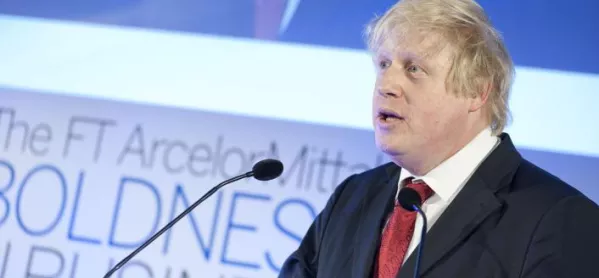Like a parched lawn sprinkled with a few meagre but encouraging drops of rain, our schools system has finally been given some positive signs on future funding.
After many months of telling cash-strapped heads that their schools have more money than ever before, senior Conservative politicians have suddenly decided - en masse - that boosting education funding might actually be something worth doing.
The issue, which had gained some traction in the 2017 general election campaign, has shot up to gain a prime position among the non-Brexit issues dominating the race to become our next prime minister.
Inspection: Ofsted must look at school funding, say heads
Strikes: Heads vote for industrial action over school funding crisis
Brexit: ‘Politicians must not short-change schools’
At last, the government seems to get it. But school leaders and teachers hoping for an end to the current era of scrimping and cutting would be wise to postpone the celebrations for a little while longer.
Firstly, the Tory leadership candidates with the most generous-sounding proposals for school funding are already knocked out.
Secondly, close examination of the package from the frontrunner has already shown it to be based on a misunderstanding and only likely to make a minimal difference. Indeed, Labour claimed this week that Boris Johnson’s proposals would actually amount to less than the increase already promised by Theresa May in the Conservative manifesto.
Even if the new PM really does turn the education funding taps on, you should probably still contain your excitement.
The Association of School and College Leaders reckons schools need an extra £5.7 billion a year just to deliver the basics that are expected of them - a figure far higher than anything yet suggested by any government politician.
Now consider the options for a new entrant to Downing Street, keen for an early domestic bounce - anything to distract people from the Brexit conundrum of doom.
Would you a) plough what extra education money you did have into school budgets, leaving you vulnerable to accusations that it is too little, too late as heads continue to cut subjects and staff?
Or would you b) use it for a fresh, eye-catching initiative - something to get the commentariat talking, to prove that you have the bold ideas needed to make Britain a success and give it a bright new future?
Last week, long-serving schools minister Nick Gibb said a priority for the next Conservative prime minister should be to make the free schools programme “iconoclastic” again so that it challenged “existing education orthodoxies”.
“Because of the constraints on spending in the last few years, we have had to restrict where those free schools are and confine them to areas where there’s a need for new school places,” he explained.
But Mr Gibb thinks the new PM should now use extra money to “to set up free schools in areas where standards are poor, even if they have sufficient places”. But letting a thousand flowers bloom may not be such good news for schools in those areas already struggling with squeezed budgets.
And if not free schools, then wouldn’t a return to serious grammar school expansion - what some saw as the original Brexit dead cat strategy - prove a welcome sideshow for the Tory faithful?
The school funding climate may changing. But that doesn’t mean that teachers can count on everything in the garden being rosy.





